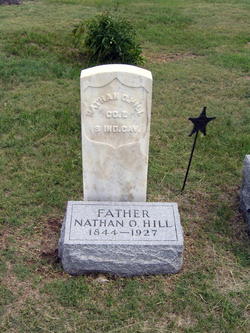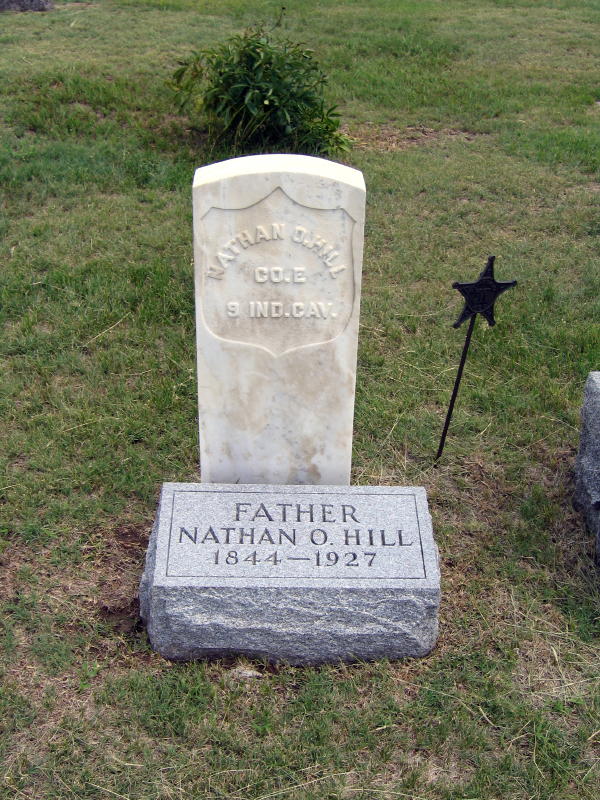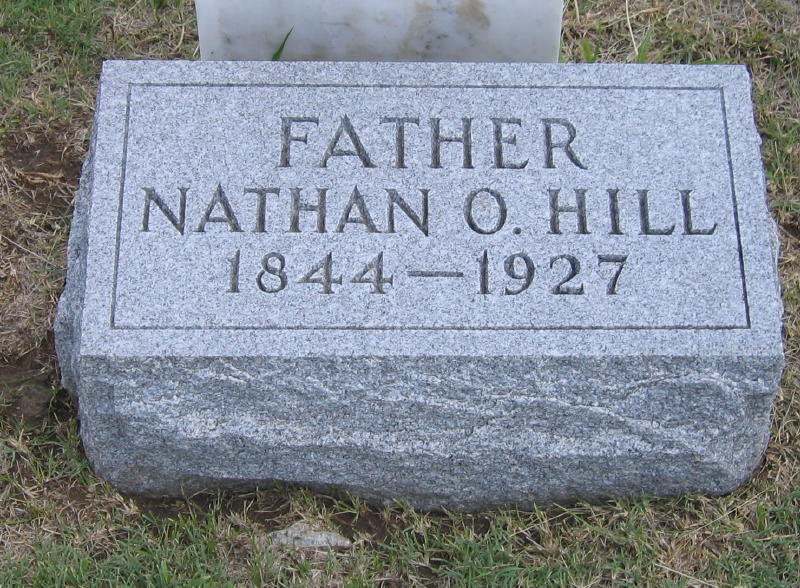He volunteered in the 9th Indiana cavalry, Company E, Army of the Cumberland, was captured at the Battle of Franklin, Tennessee (Dec. 1864), taken to Cahaba, AL prison, and then transferred to Andersonville, GA, where he stayed until the end of the war. He was honorably discharged at the end of the Civil War on July 6, 1865.
Andersonville, or Camp Sumter as it was officially known, was one of the largest of many Confederate military prisons established during the Civil War. It was built early in 1864 after Confederate officials decided to move the large number of Federal prisoners kept in and around Richmond, Virginia, to a place of greater security and a more abundant food supply. During the 14 months the prison existed, more than 45,000 Union soldiers were confined here. Of these, almost 13,000 died from disease, poor sanitation, malnutrition, overcrowding, or exposure to the elements.
He volunteered in the 9th Indiana cavalry, Company E, Army of the Cumberland, was captured at the Battle of Franklin, Tennessee (Dec. 1864), taken to Cahaba, AL prison, and then transferred to Andersonville, GA, where he stayed until the end of the war. He was honorably discharged at the end of the Civil War on July 6, 1865.
Andersonville, or Camp Sumter as it was officially known, was one of the largest of many Confederate military prisons established during the Civil War. It was built early in 1864 after Confederate officials decided to move the large number of Federal prisoners kept in and around Richmond, Virginia, to a place of greater security and a more abundant food supply. During the 14 months the prison existed, more than 45,000 Union soldiers were confined here. Of these, almost 13,000 died from disease, poor sanitation, malnutrition, overcrowding, or exposure to the elements.
Inscription
FATHER
(on military marker) CO. E 9 INF. CAV.
Family Members
Sponsored by Ancestry
Advertisement
Explore more
Sponsored by Ancestry
Advertisement










